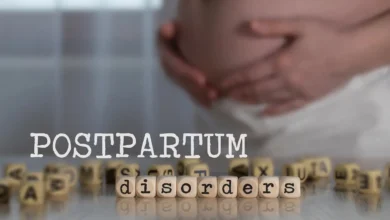Parenting can be an experience filled with love and joy. It can also bring about new beginnings. Maintaining a healthy relationship can be a challenge, especially when you’re trying to keep it going. Keeping Your Love Strong After Babies can be essential, as the arrival and growth of a baby can affect everything in your life. Early parenthood can be a challenging time. Couples may feel overwhelmed with the demands and responsibilities of raising an infant.
As a therapist and wife with three children under the age of five, I am often asked for advice about how to improve relationships when faced with the new life-changing experience of parenthood. In all honesty, I wasn’t prepared for the challenges of marriage and parenting. I did not fully understand how exhausting parenting would be or how little energy I would have left to give someone else, let alone myself. This is a common admission by new parents, who are often surprised. You may feel depleted if you are constantly present for your child. This can also lead to a disconnect with your partner.
My husband and I were married less than a month after we had our first child. We welcomed our daughter with all the energy, love, and excitement that comes along with a newborn baby. But she also brought new responsibilities and challenges to our relationship that we had not anticipated. We realized our struggles weren’t unusual as we tried to get our feet under us. It can be isolating for couples to go through the changes of parenting in their early years.

Parent-Child Relations and Marital Strain
The majority of couples report a decline in their relationship satisfaction during the first three years after having a baby. Almost two-thirds of couples experience a significant drop in their relationship quality during the first three years as parents. This decline is primarily due to:
Conflict Increase
With the addition of a child, both partners must adjust to the new roles, responsibilities, and emotional dynamics. As both partners try to balance work, parenting, and personal needs, this change can lead to more disagreements and misunderstandings.
Reduced Intimacy
Due to the physical and emotional demands that come with parenthood, couples often have little time for physical affection or intimate relationships. This lack of intimacy can lead to feelings of frustration or loneliness.
Stress
Adjusting to a newborn can cause stress and tension. Stress, coupled with sleep deprivation and financial concerns,s can hurt a relationship.
Identity Change
Being a parent forces partners to rethink their roles, identities and priorities. The shift in philosophy can lead to miscommunication or disconnection between partners if they do not communicate their changing needs.
Strategies to Strengthen Your Relationship After a Baby
A baby can be a wonderful and life-changing event, but it also brings new challenges into your relationship. Parenthood’s demands can make it difficult to communicate with your partner. This can lead to tension and stress. With intentional communication and effort, you can deepen and strengthen your relationship. This guide will explore strategies that can help couples transition into parenthood and maintain a healthy relationship.
1. Discussions on Parenting
You may have talked about parenting values and philosophies before the baby arrived, but the realities of parenting daily may require further discussion. You should discuss your respective roles when raising the child. Being on the same page about issues such as discipline, sleep schedules, or how to deal with extended family can help reduce conflict.
2. Enjoy Time Together as a Couple
It’s not true that you stop being a couple when you have a child, but it can sometimes feel like it. It is easy to see each other only as co-parents. It’s important to maintain your relationship as a couple. Even though it can be hard to find time apart from your baby, small moments alone–a walk or coffee date, for example–can help preserve your relationship.
3. Prioritize Your Self-care
Take care of yourself. It’s easy to become overwhelmed by the demands of parenting and your child. Neglecting your health can negatively impact your relationship. Plan time for activities that will nourish your mind and body, such as reading, exercising, or socializing with friends. It’s not selfish to take care of yourself. You will have more energy and emotional bandwidth for your partner and baby if you do.
4. Create a Financial Plan
The financial impact can be substantial when you have a child. Plan, make a budget, and talk about how you’ll manage your expenses. Open conversations about money, especially if a parent decides to leave work or unexpected expenses occur, can help reduce stress and prevent financial tension. Financial planning can reduce stress and allow for more emotional connections.
5. Ask for Help When You Need It
Asking for help can be overwhelming. It’s not a weakness but a strength. You can avoid resentment by getting help, whether it is from a family member who will help with the child, a nanny, or a therapist or counselor. Working together to get outside help is an important way to create a more cohesive partnership.
6. Check in With Each Other Regularly
A daily check-in is a simple but effective way to stay in touch. These moments of communication, whether you are discussing your baby’s development, how you feel emotionally, or talking through any challenges, help you to stay in tune with each other. This is also a great opportunity to encourage and offer support. Check-ins help prevent frustrations and keep you united as a family.

Ideas on How to Deal with Relationship Challenges
How can couples maintain their relationship in the face of challenges that come with parenthood? Some research-backed techniques can strengthen your relationship during this difficult period. Here are three key ingredients to nurturing your relationship following the birth of your child:
1. Maintain and Strengthen Your Friendship
A solid friendship is the foundation of any relationship that will last. Your relationship’s quality depends on your ability to communicate, support, and know each other. Once a child is born, couples often stop prioritizing friendship. During the challenges of parenting, it is easy to forget to spend time with each other.
Nurturing your friendship is the key to maintaining a healthy relationship after a baby. Couples need to make time for personal connection. It is important to have regular, open, honest, and meaningful conversations that go beyond the responsibilities of childcare. These conversations remind you of your emotional bond.
It’s important to find moments in our busy lives where we can speak without distractions. Think about a simple “10-Minute-Time-Out” exercise. In this exercise, you and your partner agree to spend 10 minutes every day in a focused discussion without distractions such as phones or TV. Take turns asking each other open-ended reconnection questions. You could ask, “What was the highlight of your day?” Or “What have you been thinking about recently?” These smaller, frequent check-ins maintain a sense of curiosity and interest in what your partner is feeling and thinking.
2. Learn to Handle Healthy Conflict
As parents, conflict is more intense. Sleep-deprived parents with high stress levels and emotions can easily let small disagreements turn into larger arguments. To prevent strain in the relationship, it’s important to learn how to handle conflict healthily.
It’s essential to regulate your emotions to handle conflict well. It can be hard to respond or think clearly when emotions are high. Researchers have found that “physiological soothing techniques” such as slowing down your breathing, going for a walk, or practicing mindfulness can help calm your body and mind when you are feeling stressed.
A good way to resolve conflict is by agreeing on an “expression” that partners can use when they feel emotionally overwhelmed. It could be a word or gesture to indicate a need for an interruption in the conversation. This will allow each partner to calm down and regain their emotional composure.
Focus on listening instead of defending when you restart the conversation. It is important to listen and understand the other person’s perspective to find a mutually beneficial solution. Instead of focusing solely on past issues or blame, aim to achieve mutual understanding.
3. Small Gestures are Powerful
Many new parents feel overwhelmed by their baby’s demands. It may seem impossible to have romantic dates or long conversations. However, research has shown that consistent small gestures and affection can make a big difference in maintaining a relationship. The small gestures, whether they are physical affection, kind remarks, or thoughtful acts, don’t take much planning or energy, but they can have a significant impact on strengthening your relationship.
It has been proven that the motto “small things often” is an effective way to keep relationships strong. The “Six-Second Kiss” is one of the easiest but most effective ways to create moments of intimacy. This kiss lasts six seconds, just enough time for you to feel emotionally connected without feeling overwhelmed. It may seem trivial, but engaging in physical affection with no expectations or pressure can bring lightness and intimacy to your relationship.
Small gestures such as making your partner coffee or leaving a thoughtful message can also foster appreciation and goodwill. They may seem insignificant, but repeated gestures help to maintain a feeling of affection and connection. A few seconds of hugging, a couple of minutes of chatting or some words of encouragement will have a lasting effect on your relationship.

Conclusion
Early parenthood is often a time of joy and excitement, but it can also present several challenges for couples. Even the strongest relationships can be tested by the demands of caring for an infant. With a little effort and a dedication to strengthening your relationship, you will emerge stronger and closer than ever.
Couples can strengthen their bond by prioritizing emotional connections, learning how to resolve conflict constructively, and embracing the importance of small gestures. This is true even when they are dealing with the challenges and exhaustion of parenting. The health of your relationship has a positive impact on your entire family in the long term. A healthy relationship provides a supportive, loving environment for your child’s development, which ensures that everyone feels valued and nurtured.
Parenthood offers couples the chance to grow closer, navigate life’s complexities together, and deepen their relationship. Your love and efforts will benefit not only you and your partner but also your children as you create a balanced and happy family dynamic.



